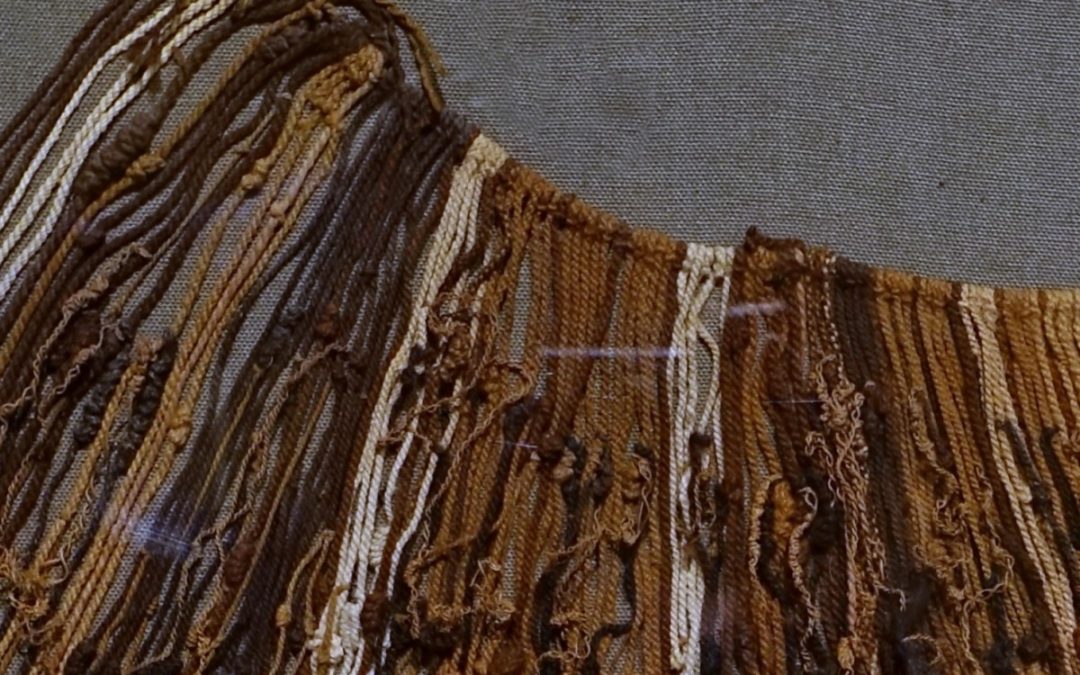
by Richard Subber | Mar 15, 2023 | American history, Book reviews, Books, History, Power and inequality
guns and germs…
Book review:
1491:
New Revelations of the Americas Before Columbus
by Charles Mann
New York: Vintage Books, 2011
1491 offers everything you never knew about civilized people in the Americas before the Europeans arrived and killed most of them (OK, many died in battle, but it was European diseases, mostly). Maybe close to 100 million “native” people died within 100 years or so of the “discovery” by Columbus…but hold on, this book is not about Wounded Knee-type criticism or ex post facto self-flagellation.
In 1491, Mann beautifully describes the marvelous sophistication of cultures, cities, agriculture, arts, and science that blossomed in North America, Central America, and South America thousands of years ago, in many cases predating achievements and growth and civilization in Europe.
Yes, the Incas never used the wheel except for children’s toys.
Yes, the Mississippian city of Cahokia was a bustling port and a trading center with population equal to Paris in France—and that was 500 years before Columbus sailed.
Yes, the Olmec culture in what is now Mexico invented the zero whole centuries before mathematicians in India did the same.
My recollection of schoolboy learning about the history of the Americas is that the dates and events were tied to discovery and conquest and colonization by Europeans. The implication was that, before the white men with guns, germs and steel arrived, nothing much was going on in whole continents characterized more by “virgin land” and “endless wilderness” than by people who had agriculture, city life, art, trade, commerce, religion, science, kings, and philosophers.
Mann offers 1491: New Revelations of the Americas Before Columbus. For me, the joy of reading this book is learning about the multiplicity of cultures that flourished in the Americas, and learning how they tamed and managed and very greenly conserved their environment…and for me, the sad revelation of this book is understanding that the peoples of the Americas were human beings whose achievements were noble and notable, and yet, lamentably, their cultural legacies are largely lost and the losses are barely mourned.
In 1533 Pizarro and his conquistadors at Cuzco precipitated the decline of the 300-year-old Inca empire in Peru. Fifty years later, the Spanish colonial administrators in Peru ordered the burning of all the Incan “khipu” knotted string records because they were “idolatrous objects.” Khipu were the Incas’ only form of writing. The smoke from the burning of their books gets in your eyes, forever and ever.
* * * * * *
Book review. Copyright © Richard Carl Subber 2023 All rights reserved.
Book review: The Sea Runners
…it informs, it does not soar…
by Ivan Doig
–
Above all: Poems of dawn and more with 73 free verse poems,
and the rest of my poetry books are for sale on Amazon (paperback and Kindle)
and free in Kindle Unlimited, search Amazon for “Richard Carl Subber”
* * * * * *

by Richard Subber | Mar 10, 2023 | Book reviews, Books, History, Politics, Power and inequality, World history
an informed passivity…
Book review:
The Last European War:
September 1939-December 1941
by John Lukacs
New Haven, CT: Yale University Press, 1976.
This is a typical scholarly Lukacs work, with high clarity insights and no inhibitions about expressing his informed critique of the work of other historians.
Lukacs illuminates the events, the leadership and the popular sentiments of national populations during the period leading up to the start of World War II and the initial conflict prior to the entry of the United States into the war in December 1941. I point to the word “national” to note the emphasis explained by Lukacs in The Last European War, based on his interpretation that national sentiments were of paramount importance in shaping both the popular reaction to war and the popular attitudes toward the conflict.
A strong impression: The people and leaders who were living through this turmoil had only marginal appreciation of the effectiveness and impact of their actions. Nevertheless, the Nazis’ rise to power was significantly facilitated by the passivity (an informed passivity, not a state of ignorance) of too many individuals who didn’t advocate a morally-framed opposition.
* * * * * *
Book review. Copyright © Richard Carl Subber 2023 All rights reserved.
Book review: Saint Joan
by George Bernard Shaw
–
Seeing far: Selected poems with 47 free verse and haiku poems,
and the rest of my poetry books are for sale on Amazon (paperback and Kindle)
and free in Kindle Unlimited, search Amazon for “Richard Carl Subber”
* * * * * *

by Richard Subber | Feb 8, 2023 | American history, Book reviews, Books, History, Politics
the Battle of the Greasy Grass…
Book review:
Lakota America:
A New History of Indigenous Power
by Pekka Hämäläinen
New Haven, CT: Yale University Press, 2019
530 pages
It’s just fabulously interesting to learn more and more about the lives, the cultures, and the civilizations of the American Indians who were in quite a number of catbird seats in the continental United States until well into the 19th century.
Don’t forget that the Battle of the Little Bighorn—“Custer’s Last Stand”—known to Indian survivors as the Battle of the Greasy Grass—played out on June 25, 1876, more than a decade after the Civil War, in the same year that Alexander Graham Bell patented his telephone.
The Lakota, one of three major groups of the Sioux Indians, were dominant in the high plains west of the Great Lakes and the Mississippi River. They became a culture on horseback, and they depended on the buffalo.
In Lakota America you’ll learn that the Lakota were not tyrants, and they were not masters of every moment and every cluster of people in their domain, but mostly they called the shots for a long time.
* * * * * *
Book review. Copyright © Richard Carl Subber 2023 All rights reserved.
Book review: The Comanche Empire
the other story of the American West…
–
As with another eye: Poems of exactitude with 55 free verse and haiku poems,
and the rest of my poetry books are for sale on Amazon (paperback and Kindle)
and free in Kindle Unlimited, search Amazon for “Richard Carl Subber”
Your comments are welcome—tell me what you’re thinking.
* * * * * *

by Richard Subber | Feb 5, 2023 | Book reviews, Books, Human Nature, Power and inequality
it’s not about rational choices…
Book review:
What’s Wrong with Economics?
A Primer for the Perplexed
by Robert Jacob Alexander, Baron Skidelsky (b1939)
New Haven, CT: Yales University Press, 2020
223 pages
Skidelsky has written a powerfully convergent book about the origins and enduring nature of economics and the lamentably over-hyped concept of Homo economicus.
“Economic Man”—the human calculating machine that continuously, exclusively acts in the most rational way to achieve maximum value at minimum cost—exists only in the imaginations of economists who invented him to fit their equally fictitious models of human behavior and modern economic activity.
In a nutshell: “…the neoclassical model of rational behaviour based on fixed preferences, complete contracts, and ample relevant information is the wrong one.” (p. 90)
What’s Wrong with Economics? will help you understand what’s wrong with our current so-called capitalist system and the people, companies, and governments that it mostly benefits.
* * * * * *
Book review. Copyright © Richard Carl Subber 2023 All rights reserved.
The Reader (Der Vorleser)
Not just a rehash of WWII…
by Bernhard Schlink
–
Seeing far: Selected poems with 47 free verse and haiku poems,
and the rest of my poetry books are for sale on Amazon (paperback and Kindle)
and free in Kindle Unlimited, search Amazon for “Richard Carl Subber”
* * * * * *

by Richard Subber | Dec 26, 2022 | American history, Book reviews, Books, History, Politics, Power and inequality
money did a lot of the talking…
Book review:
The Founders’ Fortunes:
How Money Shaped the Birth of America
by Willard Sterne Randall
New York: Dutton, an imprint of Penguin Random House LLC, 2022
324 pages
Randall offers details about the wealth—and intermittent lack thereof—of a number of the so-called “Founding Fathers,” and how persistently those men looked out for their own financial interests throughout the Revolutionary era.
Presumptively you aren’t surprised to learn about these details.
There’s plenty more to learn when you read The Founders’ Fortunes.
The matter-of-fact point is that these men were looking out for themselves at the same time that they were creating the independent United States of America.
* * * * * *
Book review. Copyright © Richard Carl Subber 2022 All rights reserved.
Book review: An Empire Divided
King George and his ministers
wanted the Caribbean sugar islands
more than they wanted the 13 colonies…
by Andrew Jackson O’Shaughnessy
–
Seeing far: Selected poems with 47 free verse and haiku poems,
and the rest of my poetry books are for sale on Amazon (paperback and Kindle)
and free in Kindle Unlimited, search Amazon for “Richard Carl Subber”
* * * * * *
by Richard Subber | Dec 19, 2022 | American history, Book reviews, Books, Democracy, History, Politics, Power and inequality
violence shut down the “Reconstruction”
Book review:
Splendid Failure:
Postwar Reconstruction in the American South
by Michael W. Fitzgerald (b1956)
Chicago: Ivan R. Dee, 2007
234 pages
Splendid Failure offers a shockingly realistic account of the so-called “Reconstruction” period after the Civil War. There was a lot more violence, much earlier in the time frame, than you probably know about.
The violence throughout the South was not successfully resisted by Northern forces after the war, and after the presidential election dispute of 1876, the Northern watchdogs withdrew their concern. Commercial and political interests asserted their primacy in the North.
Fitzgerald observes: “At the national level the Republicans were the party of economic growth” (p. 100).
The white elites who held the economic and political power in the South before the war basically regained their economic and political power after the brief period of nominally reformative so-called “Reconstruction.”
As we now know, the war and the so-called “Emancipation Proclamation” weren’t the end of the story.
* * * * * *
Book review. Copyright © Richard Carl Subber 2022 All rights reserved.
–
Seeing far: Selected poems with 47 free verse and haiku poems,
and the rest of my poetry books are for sale on Amazon (paperback and Kindle)
and free in Kindle Unlimited, search Amazon for “Richard Carl Subber”
* * * * * *




